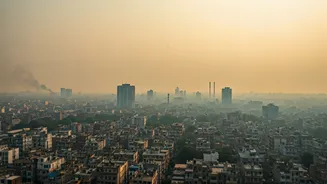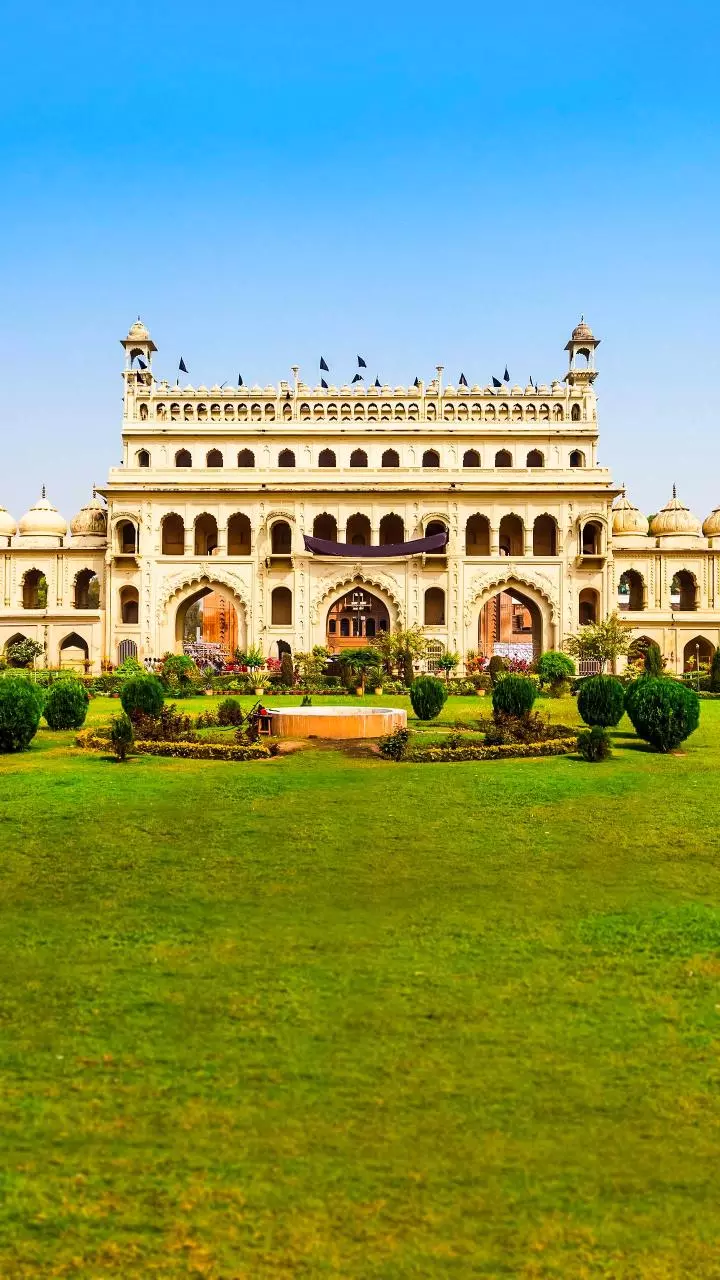AQI Deterioration Overview
The air quality index (AQI) in Delhi has once again fallen into the 'very poor' category. The concentration of pollutants in the air has reached alarming
levels, with the primary reason being identified as the rampant burning of crop residue in neighboring states. The AQI measures the levels of various pollutants in the air, including particulate matter (PM2.5 and PM10), ozone, nitrogen dioxide, sulfur dioxide, and carbon monoxide. An AQI reading between 201 and 300 is considered 'poor,' while above 300, it is categorized as 'very poor.' This recent decline is a cause of serious concern for the residents of Delhi, who are constantly exposed to harmful air pollutants. The situation demands immediate attention and effective steps to manage the air quality, to protect public health and ensure a healthier environment for all. Authorities are under pressure to implement stringent measures to address the sources of pollution and protect citizens from its adverse effects.
Farm Fires Explained
Farm fires, the burning of crop residue by farmers after harvesting their crops, are a significant contributor to Delhi's air pollution. This practice is common in the neighboring states of Punjab, Haryana, and Uttar Pradesh. Farmers often resort to burning the remaining stubble to quickly clear their fields for the next planting season, thus saving time and money. While this approach provides an efficient way to prepare the land, it has severe consequences for air quality, especially when wind patterns carry the smoke towards Delhi. The smoke from these fires is packed with pollutants such as particulate matter, carbon monoxide, and various other harmful gases. The emissions directly contribute to the formation of smog and significantly reduce air quality, thus endangering the health of millions in the national capital. The impact of farm fires is not limited to air pollution. It also causes soil degradation and contributes to climate change. Various efforts are underway to address the problem, including awareness campaigns, subsidies for alternatives, and stricter enforcement of regulations. However, more robust and collaborative measures are needed to effectively minimize the practice of farm fires and protect air quality.
Health Hazards Unveiled
The 'very poor' air quality in Delhi poses a significant threat to public health. The high concentration of pollutants in the air can lead to a variety of respiratory and cardiovascular illnesses. Prolonged exposure to poor air quality can result in coughing, wheezing, shortness of breath, and chest pain. Those with pre-existing conditions, such as asthma and chronic obstructive pulmonary disease (COPD), are at heightened risk of experiencing severe symptoms. Children and the elderly are especially susceptible to the adverse effects of air pollution. Studies have shown a direct correlation between high levels of air pollution and increased hospital admissions, emergency room visits, and even mortality rates. The particulate matter in the air can penetrate deep into the lungs and even enter the bloodstream, causing systemic inflammation and a wide array of health problems. The constant exposure to poor air quality in Delhi has raised serious concerns among health experts and the public alike, emphasizing the urgent need for measures to control pollution and safeguard public health. Immediate actions include government initiatives, public awareness, and individual precautions to mitigate the health risks associated with the worsening air quality.
Governmental Initiatives
The government has implemented several measures to tackle air pollution in Delhi, focusing on various aspects of the problem. These initiatives include the promotion of cleaner fuels, such as the switch to BS-VI emission standards for vehicles, which have reduced emissions considerably. Additionally, efforts are underway to promote electric vehicles (EVs) through subsidies and tax benefits. The government is also investing in infrastructure projects, such as the construction of the Eastern and Western Peripheral Expressways, to divert traffic and reduce congestion. The implementation of the Graded Response Action Plan (GRAP) is another key measure, which involves a series of emergency actions based on the severity of air pollution. The GRAP includes restrictions on construction activities, the closure of polluting industries, and bans on the use of diesel generators. Furthermore, the government actively works on awareness campaigns, educating the public on the causes of air pollution and ways to mitigate its impact. While these initiatives are steps in the right direction, more aggressive and comprehensive measures are needed to achieve significant and sustainable improvements in Delhi's air quality, thus safeguarding the health of the populace and supporting sustainable development.
Future Mitigation Strategies
Looking ahead, several strategies are crucial for improving Delhi's air quality. Primarily, there is a strong need to reduce farm fires. This could be achieved through the promotion of alternative methods for disposing of crop residue, such as the use of bio-decomposers or providing subsidies for machinery. Encouraging farmers to adopt these methods is vital. Besides, a major emphasis should be placed on transitioning to renewable energy sources and enhancing public transportation infrastructure to minimize emissions. Expanding the network of metro lines, improving bus services, and promoting the use of electric vehicles can significantly reduce reliance on private vehicles. Strengthening the enforcement of pollution control regulations and increasing public awareness on the impact of air pollution is also essential. Collaborating with neighboring states to address the issue of farm fires and implementing region-wide air quality management plans is vital. Continuous monitoring of air quality, along with the prompt implementation of effective and flexible action plans is required. A multi-pronged approach involving coordinated efforts from government, industry, and the public is vital to address this complex challenge and protect the health of Delhi's residents.





















